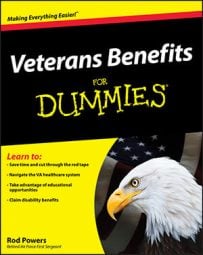Most, but not all, veterans are eligible for veterans burial and memorial benefits. As a veteran, military and even private burial expenses may be covered. Burial at Arlington may even be permitted under certain circumstances.
Check eligibility for military burial benefits
You’re eligible if you fall into one of the following categories:
President or former presidents of the United States, based on their service as commander in chief. If you’ve ever been president of the U.S., you probably don’t need to read any further in this article. Presumably, someone will take care of your funeral arrangements for you.
Veterans who die while on active duty. This includes active duty for training for members of the reserves and National Guard.
Veterans who have active-duty service on or before September 7, 1980 (enlisted), and on or before October 16, 1981 (officers), and have a discharge characterization that the Department of Veterans Affairs (VA) doesn’t consider dishonorable.
Veterans with service beginning after September 7, 1980, as an enlisted person, and service after October 16, 1981, as an officer, with at least 24 months of continuous, active-duty service. Again, such veterans must have a discharge characterization that the VA doesn’t consider dishonorable.
Members of the National Guard or Reserves who were called to active duty for less than 24 months and served during the entire period of the call-up. These veterans must also have a discharge characterization that the VA doesn’t consider dishonorable.
Reservists and National Guard members who, at the time of death, were entitled to retired pay, or would have been entitled, but for being under the age of 60.
Reservists who die due to an injury or illness incurred or aggravated by military service.
Meet conditions for veteran burial expense reinbursement
If a veteran is buried or inurned in a private cemetery, the government is willing to pick up some of the expenses, as long as the veteran meets certain criteria. In addition to the eligibility criteria for burial listed in the preceding section, at least one of the following conditions must be met:
The veteran died because of a service-related disability.
The veteran was receiving VA pension or compensation at the time of death.
The veteran was entitled to receive VA pension or compensation, but decided not to reduce his military retirement or disability pay.
The veteran died while hospitalized by the VA or while receiving care under VA contract at a non-VA facility.
The veteran died while traveling under proper authorization and at VA expense to or from a specified place for the purpose of examination, treatment, or care.
The veteran had an original or reopened claim pending at the time of death, and the VA ruled he was entitled to compensation or pension from a date before the date of death.
The veteran died on or after October 9, 1996, while a patient at a VA-approved state nursing home.
Which veterans are allowed into Arlington?
Arlington National Cemetery has strict eligibility criteria. For one thing, eligible veterans must have a fully honorable discharge, not just a discharge that the VA considers to be other than dishonorable.
Burial at Arlington National Cemetery is an exclusive honor, restricted to those who fit one of the following categories:
Service members who die on active duty, except those on duty-for-training purposes only.
Active-duty retirees.
Reserve and National Guard retirees age 60 and older who are drawing retired pay at the time of death and who have served a period of active duty for more than training purposes.
Veterans who have been awarded the Medal of Honor, Distinguished Service Cross, Air Force Cross, Navy Cross, Distinguished Service Medal, Silver Star, or Purple Heart.
Former prisoners of war who died on or after November 30, 1993.
Widows and widowers of service members who are officially determined missing in action.
Spouses, widows, widowers, minor children, permanently dependent children, and certain unmarried adult children of eligible veterans. (When spouses or children die first, service members must agree in writing to be buried at the same site.)

